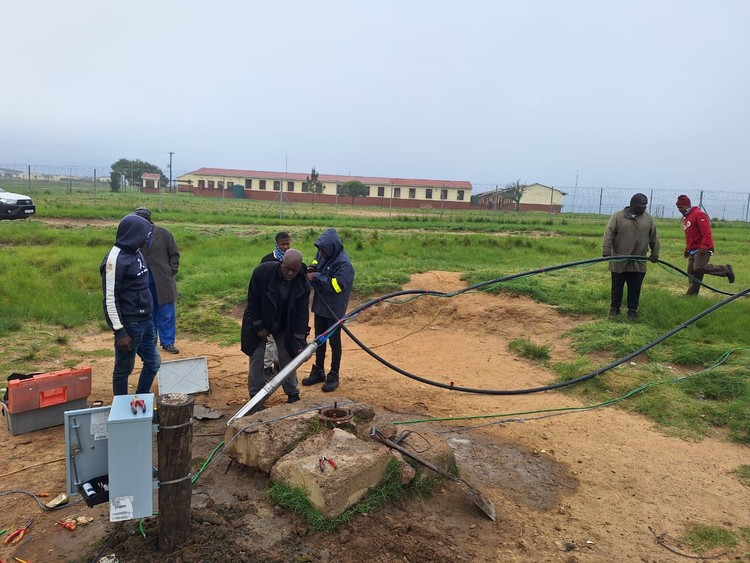
17 October 2024
Youngsters from the Ndatshana community in rural KwaZulu-Natal install water pumps and pipes purchased by residents last year so that they can access running water. Photo supplied.
Frustrated villagers in Ndatshana, near Nquthu in rural KwaZulu-Natal, have used their social grants to contribute towards fixing old water pipes and installing basic infrastructure.
Taps in the community had been dry for seven years, according to the residents. People would spend up to three hours fetching water from the communal borehole. They said their water infrastructure is old and has never been repaired by the Umzinyathi District Municipality.
So in July last year, the villagers agreed to collect R300 from each household to raise enough money to hire plumbers, buy two water pumps (worth about R36,000 each), taps and pipes.
When we visited Ndatshana last week, Phindile Gumbi was collecting R100 from community members to fix one of the pumps.
“Most people here depend on social grants and government pensions. We actually can’t afford [to contribute] this money but we are forced to pay it because it helps us access water,” said Gumbi.
Khethiwe Masango said she was paying her family’s share because they no longer wanted to walk long distances with heavy wheelbarrows filled with water containers.
Thandeka Ngobese, spokesperson for the Umzinyathi District Municipality, promised to respond to our questions related to the collapse of water infrastructure in Ndatshana on 8 October but had failed to do so at the time of publication.
The Witness reported earlier this year that the South African Human Rights Commission had visited the district to monitor progress following its 2023 report that revealed Umzinyathi was among four KZN municipalities with significant backlogs, ageing infrastructure, corruption and non-payment of services.
Among the commission’s recommendations was for the municipality to implement water delivery plans such as water tanks managed by local ward councillors. The municipality was also meant to address corruption related to the water tanker system, and prioritise fixing high water losses, among other things.
Published in partnership with Intuthuko News.